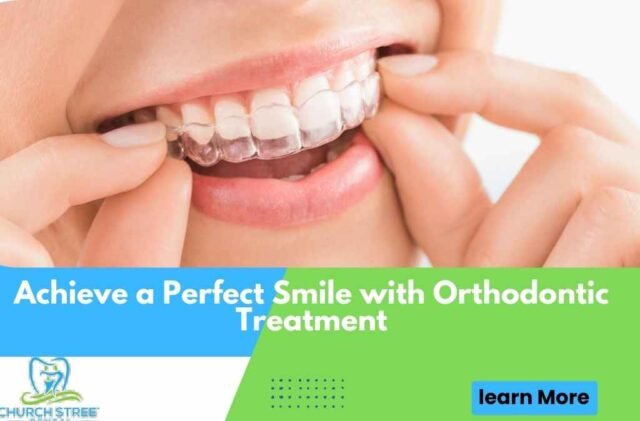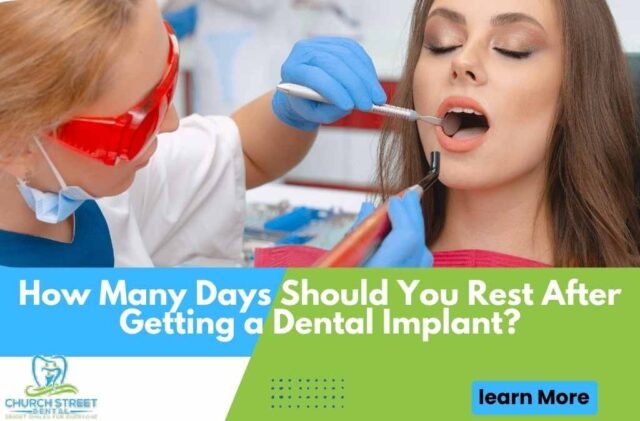In today’s world, a bright, flawless smile is often seen as a symbol of beauty, confidence, and health. For many, achieving that perfect smile is a top priority, but it can seem out of reach due to various dental imperfections. Whether you’re dealing with chipped, stained, or slightly crooked teeth, dental veneers offer a quick and easy solution to transform your smile into one you can be proud of. In this comprehensive guide, we’ll explore everything you need to know about dental veneers, from the procedure to the benefits, costs, and aftercare.
What Are Dental Veneers?
Dental veneers are thin, custom-made shells designed to cover the front surface of your teeth, improving their appearance. Made from materials like porcelain or resin composite, these veneers are bonded to your teeth, giving them a natural, aesthetically pleasing look. Whether you want to correct minor dental issues or achieve a complete smile makeover, dental veneers can be an ideal solution.
Porcelain Veneers vs. Resin Composite Veneers
Porcelain veneers are the most popular choice due to their durability, natural appearance, and stain resistance. They closely mimic the light-reflecting properties of natural teeth, making them virtually indistinguishable from your real teeth. Resin composite veneers, on the other hand, are less expensive and require less enamel removal but may not last as long or resist stains as well as porcelain veneers.
The Dental Veneers Procedure
Understanding the dental veneers procedure can help alleviate any concerns or anxieties you might have. Here’s a step-by-step guide to what you can expect when getting veneers:
Step 1: Consultation with the Best Dentist for Veneers Near You
The first step in the dental veneers process is scheduling a consultation with an experienced dentist. During this visit, the dentist will evaluate your dental health, discuss your goals, and determine whether veneers are the right option for you. They’ll also take X-rays or make impressions of your teeth as part of the planning process.
Step 2: Tooth Preparation
In the next appointment, your dentist will prepare your teeth for veneers. This involves removing a small amount of enamel from the front surface of your teeth to make room for the veneer. The amount of enamel removed is usually minimal and is roughly equivalent to the thickness of the veneer being applied.
Step 3: Making an Impression
Once your teeth are prepared, the dentist will take an impression of your teeth. This impression is sent to a dental lab where your custom veneers will be fabricated. In the meantime, temporary veneers may be placed on your teeth to protect them and maintain your smile’s appearance.
Step 4: Veneer Placement
When your porcelain veneers are ready, you’ll return to the dentist for the final placement. The dentist will first check the fit and color of the veneers, making any necessary adjustments. Then, the veneers will be permanently bonded to your teeth using a special adhesive. A curing light will be used to harden the adhesive, securing the veneer in place.
Step 5: Final Adjustments
After the veneers are bonded, the dentist will make any final adjustments needed to ensure a perfect fit. This may include trimming the veneers, polishing them, or making small tweaks to your bite.
Benefits of Dental Veneers
Dental veneers offer numerous benefits, making them a popular choice for those looking to enhance their smile. Here are some of the key advantages:
1. Natural Appearance
One of the most significant benefits of dental veneers is their natural appearance. Porcelain veneers, in particular, are designed to mimic the light-reflecting properties of natural teeth, making them nearly indistinguishable from your real teeth.
2. Versatility
Veneers can address a wide range of dental issues, including stained, chipped, cracked, or misaligned teeth. They can also close gaps between teeth and make your teeth look more uniform in size and shape.
3. Stain Resistance
Porcelain veneers are highly resistant to stains, making them an excellent choice for those who want to maintain a bright, white smile. Unlike natural teeth, which can become discolored over time due to coffee, tea, wine, and other staining agents, porcelain veneers will keep their color for many years.
4. Durability
With proper care, dental veneers can last for many years, making them a long-term solution for a beautiful smile. Porcelain veneers, in particular, are known for their durability and can last anywhere from 10 to 15 years or more.
5. Minimal Tooth Alteration
Unlike other cosmetic dental procedures, veneers require minimal alteration to your natural teeth. Only a small amount of enamel is removed to accommodate the veneer, preserving the majority of your tooth’s structure.
6. Quick Transformation
If you’re looking for a fast way to improve your smile, veneers are an ideal option. The entire process, from consultation to final placement, can be completed in just a few weeks, giving you a new smile in a relatively short amount of time.
How Long Do Dental Veneers Last?
One of the most common questions patients have about dental veneers is how long they will last. The longevity of veneers depends on several factors, including the type of material used, your oral hygiene habits, and your lifestyle choices.
Porcelain Veneers
Porcelain veneers are known for their durability and can last anywhere from 10 to 15 years or even longer with proper care. To maximize the lifespan of your veneers, it’s essential to practice good oral hygiene, avoid biting into hard objects (like ice or pens), and visit your dentist regularly for check-ups and cleanings.
Resin Composite Veneers
While less expensive, resin composite veneers typically have a shorter lifespan than porcelain veneers, lasting around 5 to 7 years. They are more prone to chipping and staining, so extra care is needed to maintain their appearance.
Veneers vs. Crowns: Which Is Right for You?
When it comes to enhancing your smile, you may wonder whether veneers or crowns are the better option. Both have their advantages, but they serve different purposes and are suited to different situations.
Veneers:
- Best for: Minor cosmetic changes, such as correcting stained, chipped, or slightly crooked teeth.
- Procedure: Veneers require minimal tooth alteration, as only a thin layer of enamel is removed.
- Appearance: Veneers are highly aesthetic and natural-looking, particularly when made from porcelain.
Crowns:
- Best for: Teeth that are severely damaged, decayed, or have undergone a root canal.
- Procedure: Crowns require more tooth alteration since the tooth is reshaped to accommodate the crown.
- Appearance: While crowns can be made to look natural, they cover the entire tooth, unlike veneers, which only cover the front surface.
Choosing Between Veneers and Crowns
The choice between veneers and crowns depends on the condition of your teeth and your cosmetic goals. If your teeth are mostly healthy and you’re looking for a cosmetic enhancement, veneers may be the better choice. However, if your teeth are damaged or weakened, a crown may be necessary to restore their function and appearance.
Dental Veneers Cost: What to Expect
The cost of dental veneers can vary widely based on several factors, including the type of veneers, the number of veneers needed, and the dentist’s expertise.
Porcelain Veneers Cost
Porcelain veneers are generally more expensive than resin composite veneers due to their durability, aesthetic appeal, and stain resistance. On average, you can expect to pay between $900 and $2,500 per tooth for porcelain veneers.
Resin Composite Veneers Cost
Resin composite veneers are a more affordable option, typically ranging from $250 to $1,500 per tooth. However, they may require more frequent replacement, which can add to the cost over time.
Factors Influencing the Cost
Several factors can influence the cost of dental veneers, including:
- Location: Dental prices can vary depending on where you live. Major cities or areas with a high cost of living may have higher prices.
- Dentist’s Expertise: Dentists with more experience or specialized training in cosmetic dentistry may charge higher fees.
- Number of Veneers: The more veneers you need, the higher the overall cost will be.
- Type of Veneers: As mentioned, porcelain veneers are more expensive than resin composite veneers.
Insurance Coverage
Dental veneers are often considered a cosmetic procedure and are not usually covered by dental insurance. However, some plans may cover a portion of the cost if the veneers are needed to repair a damaged tooth. It’s best to check with your insurance provider to understand what, if any, coverage is available.
Dental Veneers Aftercare: Keeping Your Smile Bright
After investing in dental veneers, it’s essential to take proper care of them to ensure they last as long as possible and keep your smile looking bright and beautiful.
1. Maintain Good Oral Hygiene
Just like with natural teeth, maintaining good oral hygiene is crucial for keeping your veneers in top condition. Brush your teeth at least twice a day with a non-abrasive toothpaste, and floss daily to remove plaque and prevent gum disease.
2. Avoid Hard Foods and Objects
While veneers are durable, they are not indestructible. Avoid biting into hard foods (like hard candies, ice, or nuts) and refrain from using your teeth as tools to open packages or bottles. These actions can cause your veneers to chip or crack.
3. Limit Stain-Causing Foods and Beverages
Although porcelain veneers are stain-resistant, it’s still a good idea to limit your intake of stain-causing foods and beverages like coffee, tea, red wine, and dark berries. If you do consume these items, rinse your mouth with water afterward to reduce the risk of staining.
4. Wear a Mouthguard
If you grind your teeth at night, wearing a mouthguard can help protect your veneers from damage. Grinding can cause the veneers to chip, crack, or wear down over time.
5. Regular Dental Check-Ups
Regular dental check-ups and cleanings are essential for maintaining your veneers and overall oral health. During these visits, your dentist will check the condition of your veneers and address any issues before they become more serious.
6. Handle Temporary Veneers with Care
If you have temporary veneers while waiting for your permanent ones, handle them with extra care. Avoid hard or sticky foods, and follow your dentist’s instructions closely to prevent any issues.
Temporary Veneers: What You Need to Know
Temporary veneers play a crucial role in the dental veneer process, especially if you’re getting porcelain veneers, which take time to fabricate.
What Are Temporary Veneers?
Temporary veneers are a short-term solution used to protect your prepared teeth and maintain the appearance of your smile while your permanent veneers are being made. These are typically made from resin and are not as durable or aesthetically pleasing as the final veneers.
Caring for Temporary Veneers
Since temporary veneers are more delicate than permanent ones, it’s important to be extra careful while you have them. Avoid hard, sticky, or chewy foods, and practice good oral hygiene to keep them clean. Temporary veneers may feel slightly different from your natural teeth, but they should provide a good indication of what your final veneers will look like.
Removing Temporary Veneers
When your permanent veneers are ready, your dentist will remove the temporary veneers and bond the permanent ones to your teeth. This process is quick and typically painless, leaving you with a beautiful, lasting smile.
Veneers for Crooked Teeth: A Cosmetic Solution
If you have mildly crooked teeth but don’t want to go through the lengthy process of orthodontic treatment, veneers can offer a fast and effective alternative.
How Veneers Correct Crooked Teeth
Veneers can be used to make teeth appear straighter by covering up minor misalignments and giving the illusion of a perfectly aligned smile. This makes them an excellent option for those with slightly crooked teeth who want immediate results without braces or aligners.
Limitations of Veneers for Crooked Teeth
It’s important to note that veneers are not a solution for severe orthodontic issues. If your teeth are significantly misaligned or if you have a bite problem, you may still need orthodontic treatment before considering veneers. However, for minor crookedness, veneers can provide a dramatic improvement in the appearance of your smile.
Dental veneers are a quick and easy way to enhance your smile, offering a range of benefits from improved aesthetics to increased confidence. Whether you’re looking to correct minor dental imperfections, achieve a whiter smile, or simply want a long-lasting cosmetic solution, veneers might be the perfect option for you.
At Church Street Dental, located in Chicopee, MA, we offer a wide variety of dental services, including custom veneers designed to give you the smile you’ve always wanted. If you’re searching for the best options for dental care, whether you’re in Chicopee or looking for a dentist in Farmington CT, our team is here to provide expert care tailored to your needs. Contact us today to schedule a consultation and take the first step toward a brighter, more confident smile.






